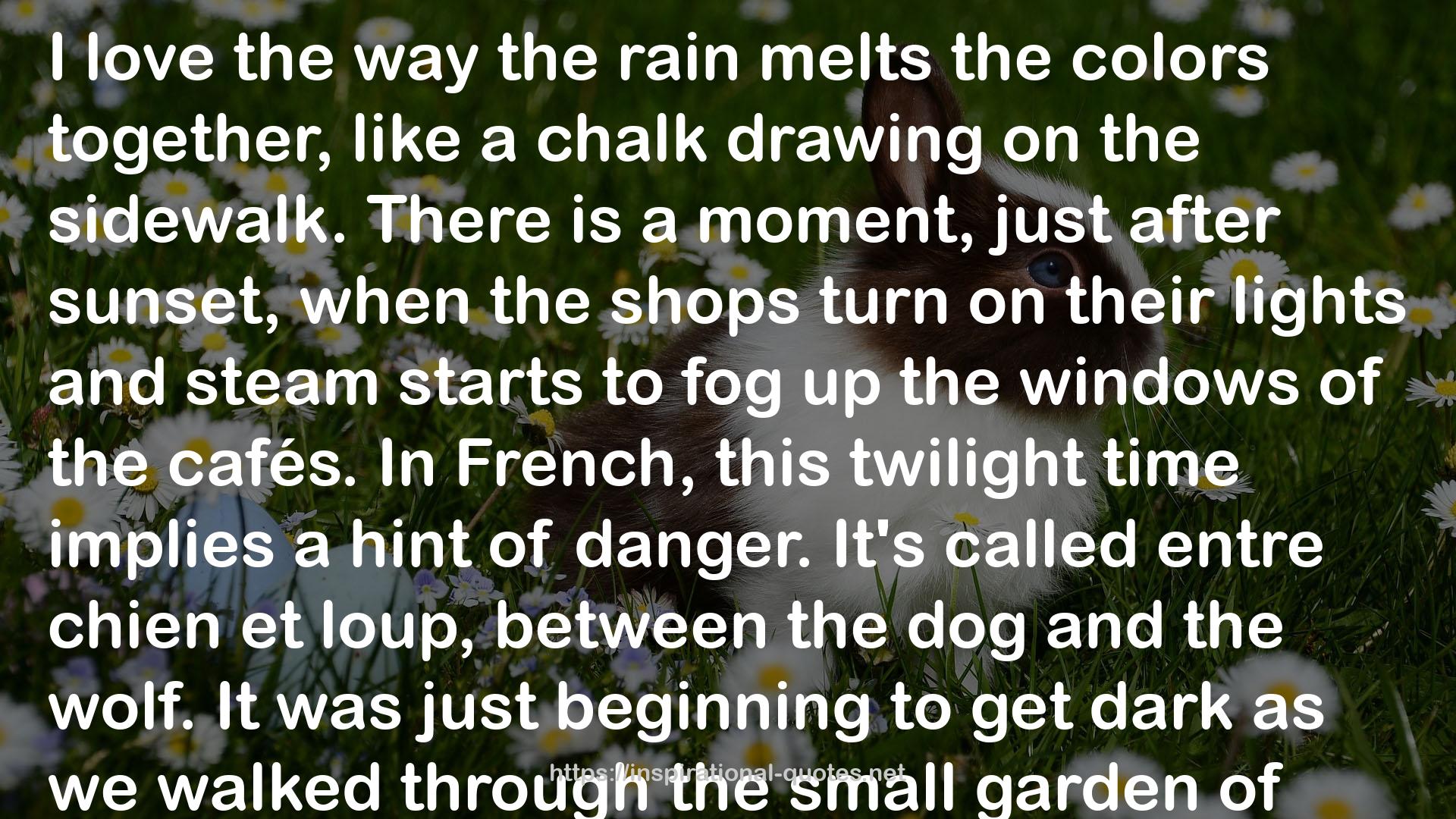" I love the way the rain melts the colors together, like a chalk drawing on the sidewalk. There is a moment, just after sunset, when the shops turn on their lights and steam starts to fog up the windows of the cafés. In French, this twilight time implies a hint of danger. It's called entre chien et loup, between the dog and the wolf.
It was just beginning to get dark as we walked through the small garden of Palais Royal. We watched as carefully dressed children in toggled peacoats and striped woolen mittens finished the same game of improvised soccer we had seen in the Place Sainte Marthe.
Behind the Palais Royal the wide avenues around the Louvre gave way to narrow streets, small boutiques, and bistros. It started to drizzle. Gwendal turned a corner, and tucked in between two storefronts, barely wider than a set of double doors, I found myself staring down a corridor of fairy lights. A series of arches stretched into the distance, topped with panes of glass, like a greenhouse, that echoed the plip-plop of the rain. It was as if we'd stepped through the witch's wardrobe, the phantom tollbooth, what have you, into another era.
The Passage Vivienne was nineteenth-century Paris's answer to a shopping mall, a small interior street lined with boutiques and tearooms where ladies could browse at their leisure without wetting the bustles of their long dresses or the plumes of their new hats.
It was certainly a far cry from the shopping malls of my youth, with their piped-in Muzak and neon food courts. Plaster reliefs of Greek goddesses in diaphanous tunics lined the walls. Three-pronged brass lamps hung from the ceiling on long chains.
About halfway down, there was an antique store selling nothing but old kitchenware- ridged ceramic bowls for hot chocolate, burnished copper molds in the shape of fish, and a pewter mold for madeleines, so worn around the edges it might have belonged to Proust himself. At the end of the gallery, underneath a clock held aloft by two busty angels, was a bookstore. There were gold stencils on the glass door. Maison fondée en 1826. "
― Elizabeth Bard , Lunch in Paris: A Love Story, with Recipes
